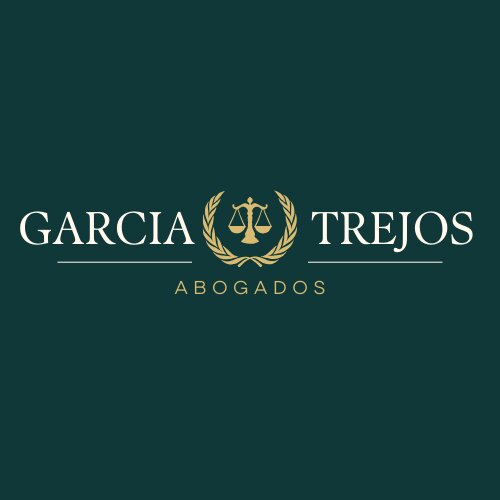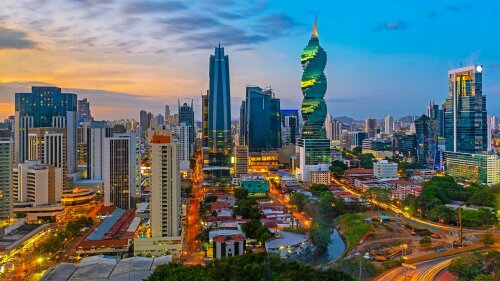Best Family Lawyers in Panama
Share your needs with us, get contacted by law firms.
Free. Takes 2 min.
Free Guide to Hiring a Family Lawyer
Or refine your search by selecting a city:
List of the best lawyers in Panama
About Family Law in Panama
Family law in Panama is a branch of civil law that addresses issues related to family relationships, including marriage, divorce, child custody, and inheritance. The legal framework governing family matters is primarily derived from the Family Code of Panama, which outlines the rights and responsibilities of family members. This legal system aims to protect the welfare of individuals, especially children, and ensure fair treatment within family dynamics.
Why You May Need a Lawyer
There are several situations where one might need legal advice in the area of family law in Panama. These situations often include:
- Divorce and Separation: Navigating the legal procedures involved in divorce, division of marital assets, and spousal support.
- Child Custody and Support: Determining custody arrangements, visitation rights, and child support obligations.
- Adoption: The legal process of adopting a child, which requires compliance with Panamanian laws.
- Domestic Violence: Seeking protection orders and legal recourse in cases of domestic abuse.
- Inheritance and Succession: Managing inheritance disputes and ensuring proper transfer of estates.
- Marriage Contracts: Drafting prenuptial agreements to protect assets and clarify financial expectations.
Local Laws Overview
Family matters in Panama are governed by specific sections of the Family Code, which cover various aspects like marriage, divorce, and child welfare. Here are key aspects of local family laws:
- Marriage: Legal marriage requires registration in the Civil Registry and can only occur if both parties meet the minimum age and consent requirements.
- Divorce: Grounds for divorce include mutual consent, separation for a specific period, domestic violence, and adultery.
- Child Custody: Custody is determined based on the best interest of the child, with a focus on maintaining stability and continuity.
- Adoption: Both domestic and international adoptions are regulated, requiring extensive background checks and legal proceedings.
- Domestic Violence: Legal measures exist to protect victims, including restraining orders and criminal charges against perpetrators.
- Inheritance: The Civil Code specifies rules for inheritance, including provisions for legitimate and illegitimate children.
Frequently Asked Questions
How can I start the divorce process in Panama?
To start the divorce process, you need to file a petition at a family court. It is advisable to consult with a lawyer who can guide you through the necessary paperwork and legal requirements.
What factors influence child custody decisions?
The primary consideration in custody decisions is the best interest of the child. Courts evaluate various factors including each parent's living conditions, the child's preferences, and the parent's ability to provide care.
Is adoption open to foreign nationals in Panama?
Yes, foreign nationals can adopt in Panama. The process requires meeting specific criteria and adhering to both local and international adoption regulations.
What legal protections are available for victims of domestic violence?
Victims can seek protection orders from the courts. Panama’s law also allows for the prosecution of domestic violence offenders, providing victims with legal and emotional support resources.
Can I draft a prenuptial agreement in Panama?
Yes, prenuptial agreements are recognized in Panama. It’s advised to hire a lawyer to ensure that the contract complies with local laws and establishes clear terms agreed upon by both parties.
How are inheritance disputes resolved?
Inheritance disputes are resolved through the civil courts. It is beneficial to seek legal advice to navigate the complex inheritance laws and ensure a fair resolution.
Are there any age requirements for marriage in Panama?
The legal age for marriage in Panama is 18. However, individuals aged 16-18 can marry with parental consent.
What is the process for modifying child support agreements?
To modify a child support agreement, you must file a request with the family court, demonstrating a significant change in circumstances that justifies the modification.
How long does it take to complete a divorce in Panama?
The duration varies based on the type of divorce. An uncontested divorce can take a few months, while contested divorces may take longer due to court proceedings.
Can same-sex couples marry in Panama?
As of now, same-sex marriage is not recognized in Panama. However, ongoing discussions and legal challenges continue to address this issue.
Additional Resources
If you need further assistance, several resources and organizations can provide help:
- Panama Bar Association: Offers referrals to experienced family law attorneys.
- Ministerio de Desarrollo Social (MIDES): Provides support for family welfare and child protection services.
- Family Courts in Panama: Handle family law cases and can offer guidance on legal proceedings.
- Non-governmental organizations: Such as Fundación Relaciones Sanas, offer support and legal advice to victims of domestic violence.
Next Steps
If you require legal assistance in family matters, consider taking the following steps:
- Consult with a qualified family law attorney to understand your rights and legal options.
- Gather necessary documentation related to your case, such as marriage certificates, evidence of domestic issues, or other relevant documents.
- Prepare a list of questions and concerns to discuss during your legal consultation to ensure all your needs are addressed.
- Consider reaching out to local support services or organizations for additional guidance and assistance with your situation.
Lawzana helps you find the best lawyers and law firms in Panama through a curated and pre-screened list of qualified legal professionals. Our platform offers rankings and detailed profiles of attorneys and law firms, allowing you to compare based on practice areas, including Family, experience, and client feedback.
Each profile includes a description of the firm's areas of practice, client reviews, team members and partners, year of establishment, spoken languages, office locations, contact information, social media presence, and any published articles or resources. Most firms on our platform speak English and are experienced in both local and international legal matters.
Get a quote from top-rated law firms in Panama — quickly, securely, and without unnecessary hassle.
Disclaimer:
The information provided on this page is for general informational purposes only and does not constitute legal advice. While we strive to ensure the accuracy and relevance of the content, legal information may change over time, and interpretations of the law can vary. You should always consult with a qualified legal professional for advice specific to your situation.
We disclaim all liability for actions taken or not taken based on the content of this page. If you believe any information is incorrect or outdated, please contact us, and we will review and update it where appropriate.
Browse family law firms by service in Panama
Panama Attorneys in related practice areas.
Browse family law firms by city in Panama
Refine your search by selecting a city.

















